From scattered to self-directed: the power of executive functions
Executive functions are your child's inner conductor - the part of her brain that coordinates thoughts, actions, and feelings.
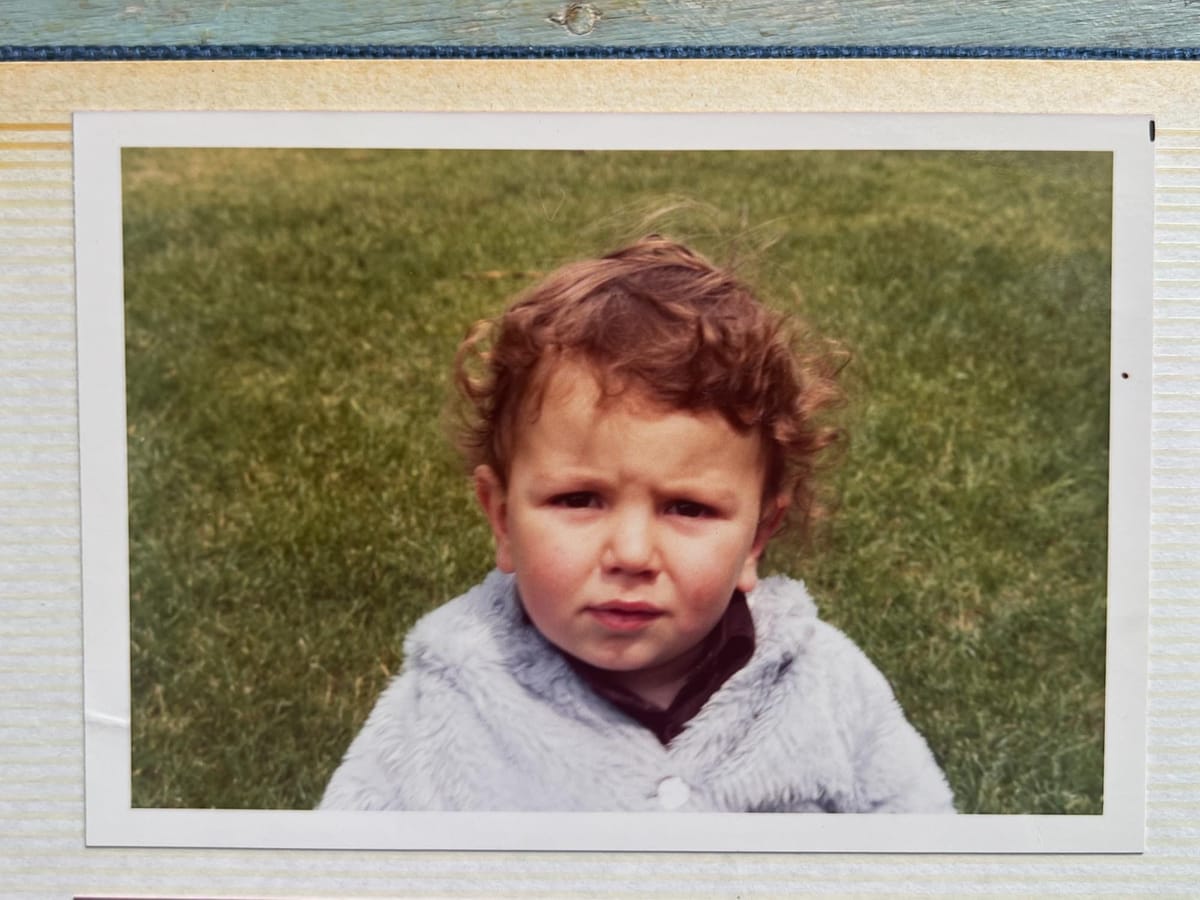
Your child is bright and capable. Yet sometimes she seems to act without thinking. She struggles to follow multi-step instructions. She gets overwhelmed by big tasks.
Sound familiar?
What you're seeing isn't bad behaviour or lack of intelligence. It's her executive functions still developing.
But here's the exciting part: these vital skills can be strengthened.
What are executive functions?
Think of executive functions as your child's inner conductor - the part of her brain that coordinates thoughts, actions, and feelings.
But there's something fascinating about these skills that many parents don't realise: they're not just thinking skills. They're actions your child learns to turn back on herself.
Every time your child:
- Stops herself from grabbing a toy (self-restraint)
- Uses self-talk to solve a problem ("First I need to...")
- Manages her frustration when things go wrong (emotional control)
- Motivates herself to complete a boring task (self-motivation)
She's using executive functions. She's learning to direct her own behaviour.
Seven powers your child is developing
Think of executive functions as powers your child is gradually developing - each one helping her gain more control over her own actions and reactions:
- Self-awareness - Your child's ability to notice what she's doing and thinking. When she says "I'm getting frustrated with this puzzle," that's self-awareness in action. This is the foundation for all other executive functions.
- Self-restraint - The power to stop and think before acting. You see this when your child pauses before grabbing something she wants, or takes a deep breath when angry instead of lashing out.
- Mental imagery - Using pictures in her mind to guide her actions. This happens when she imagines how to build something with blocks before starting, or remembers where she left her favourite toy.
- Inner voice - The ability to talk to herself inside her head. Listen when your child plays - you might hear her muttering "First I need to... then I'll..." This private speech gradually becomes her inner guide.
- Emotional control - The power to manage her feelings. When your child learns to calm herself down or cheer herself up, she's developing this crucial skill.
- Self-motivation - The ability to keep going even when things are difficult or boring. You see this when your child persists with a challenging task without needing constant encouragement.
- Mental play - Using her imagination to solve problems and plan ahead. When your child thinks through different ways to build a den or rescue her stuck teddy, she's exercising this power.
These aren't just skills your child needs to learn - they're powers she's already beginning to develop. Every time she uses one, it grows stronger.
When professionals talk about executive functions, they often use technical terms. Mental imagery is called 'non-verbal working memory,' and inner voice is 'verbal working memory.' Knowing these terms can help you navigate conversations about your child's development.
Why traditional advice often fails
Perhaps you've tried:
- Reward charts for good behaviour
- Constant reminders to pay attention
- Step-by-step instructions for every task
These external supports might help in the moment. But they don't strengthen your child's ability to direct her own actions.
It's like holding the bicycle steady instead of teaching her to balance.
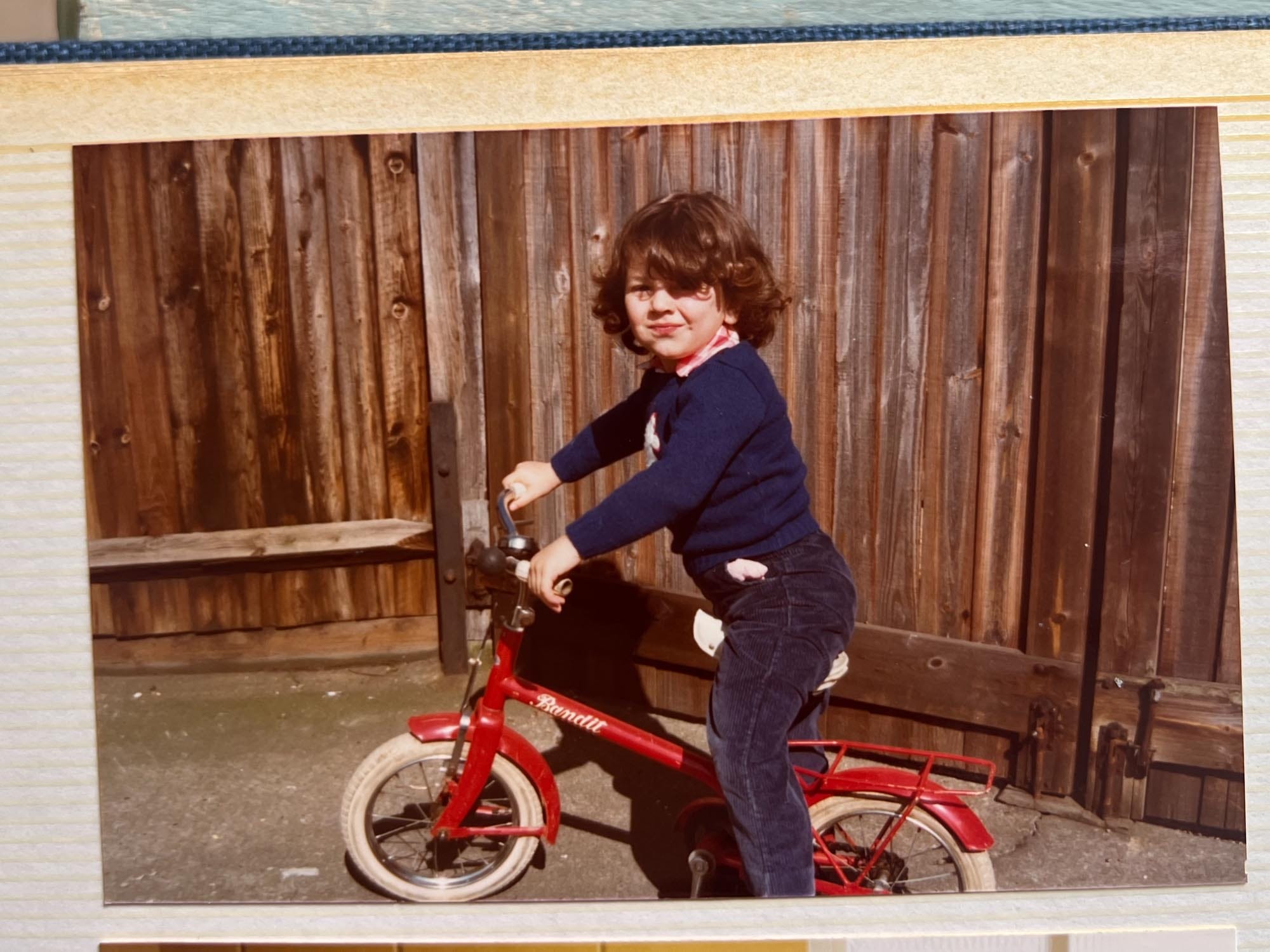
The missing piece: self-regulation
Here's what makes executive functions so powerful: they're the foundation of self-regulation - your child's ability to control her own behaviour and emotions.
When your child can:
- Hold her goals in mind
- Resist immediate impulses
- Manage her emotions
- Generate her own motivation
She's not just following rules - she's developing the self-regulation she'll need for life.
How these skills naturally develop
Your child builds executive functions through:
- Self-directed play. When she creates her own games, follows made-up rules, and solves pretend problems, she's strengthening her inner conductor.
- Social interaction. Negotiating with friends, taking turns, and managing conflicts all require executive function skills.
- Daily challenges. Even simple tasks like getting dressed or packing a bag provide opportunities to practice planning and organisation.
Signs your child needs support
Watch for these indicators that your child's executive functions need strengthening:
- Struggles with transitions. Moving from one activity to another feels overwhelming.
- Relies heavily on reminders. Needs constant prompting to stay on task or follow routines.
- Gets easily frustrated. Small setbacks lead to big emotions.
- Has trouble starting tasks. Especially ones that seem complex or boring.
An unhappy day
Here’s a cool dude, dressed to impress in 1970s London.
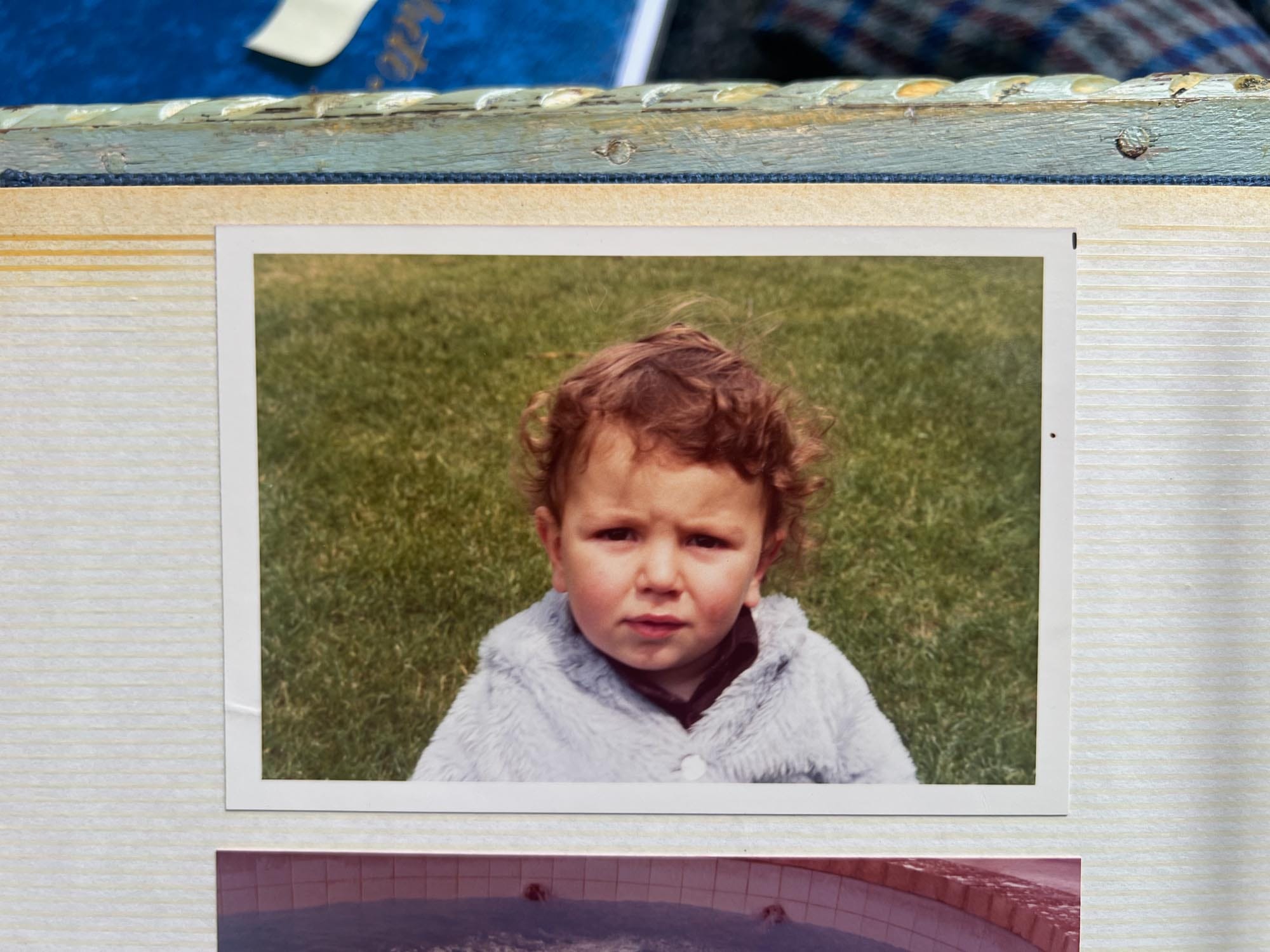
He has a new ball and he’s ready for fun.
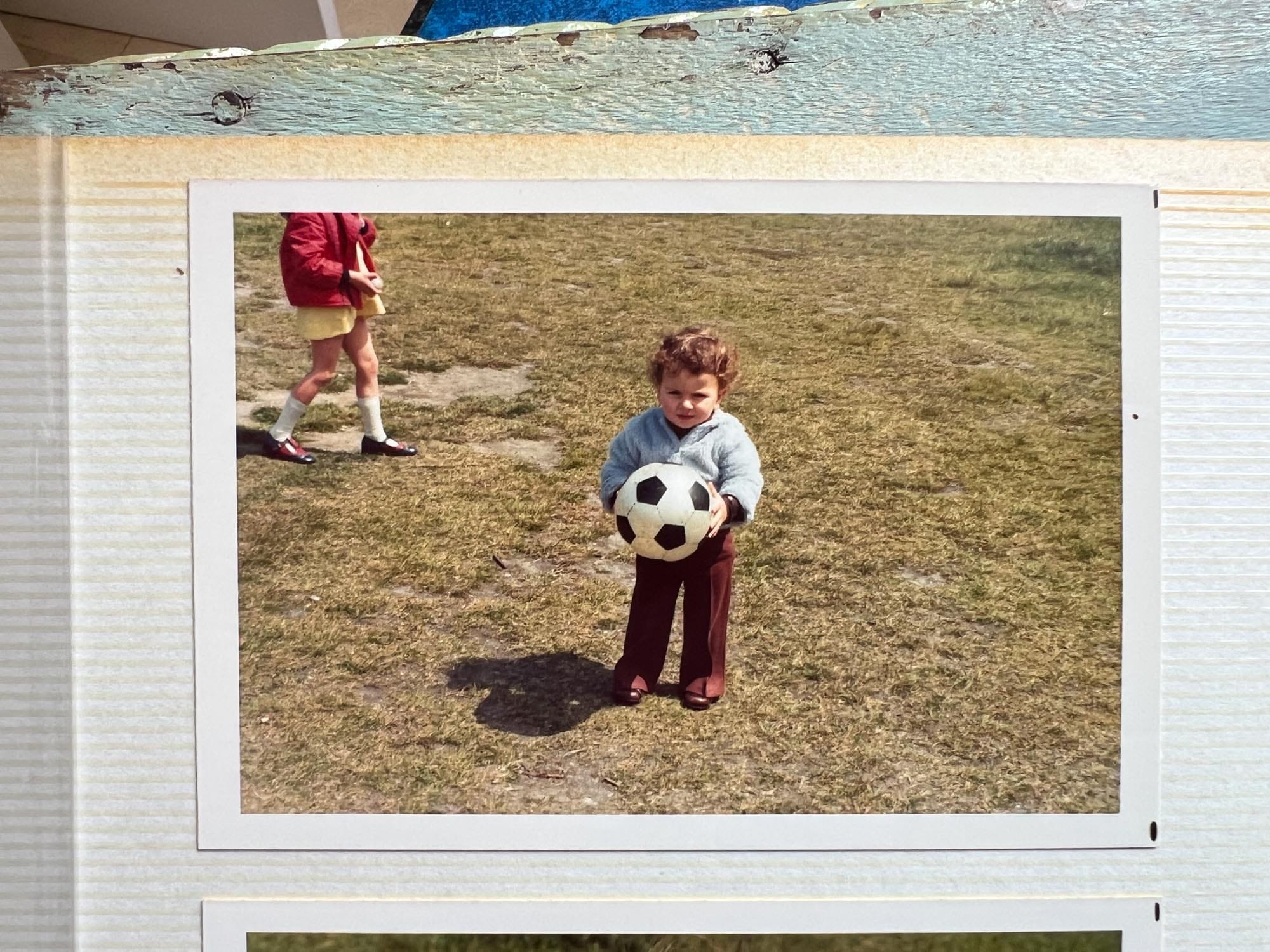
But, look out! Here comes trouble!
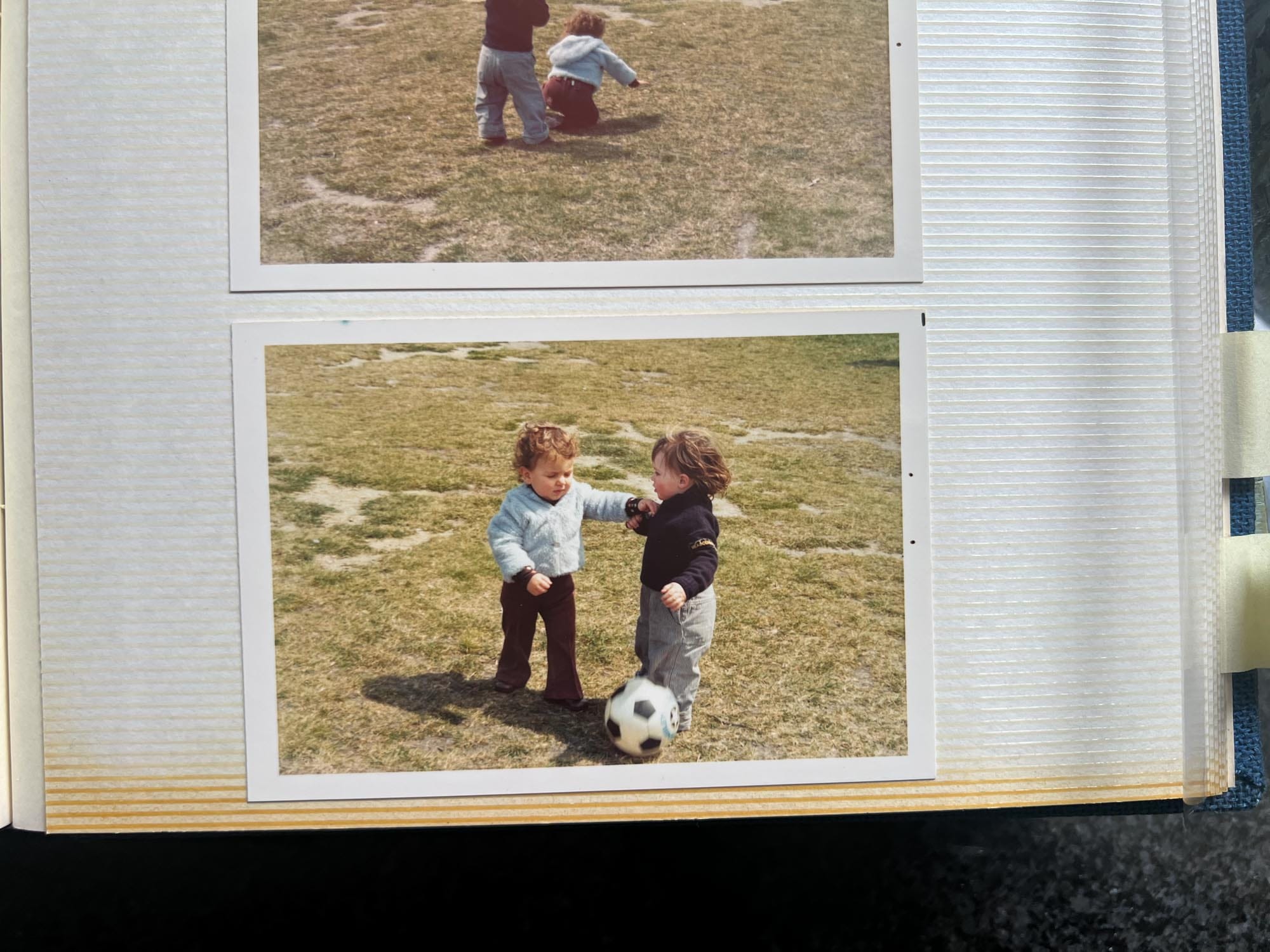
Oi! Give me that ball!
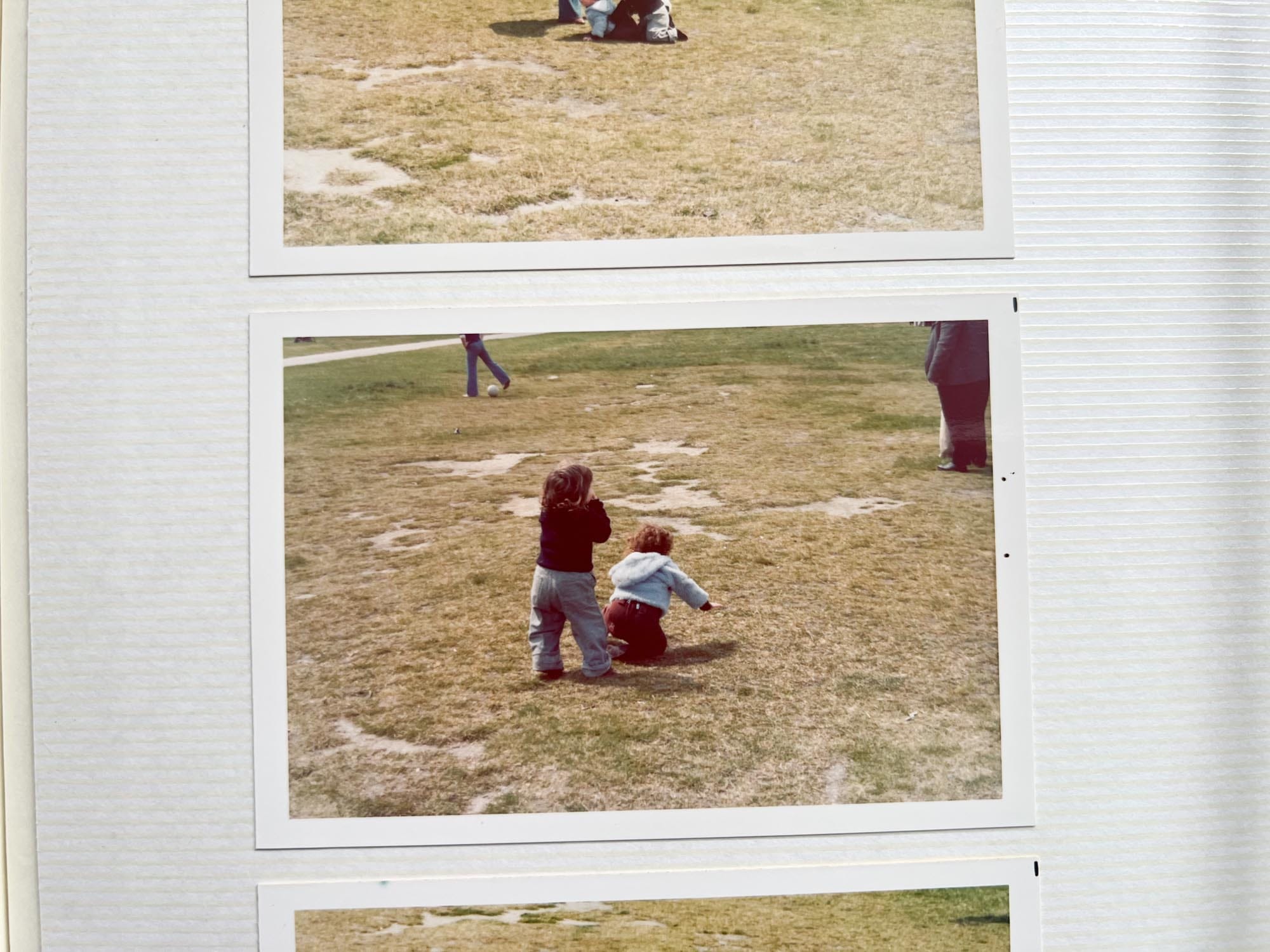
What a meanie! He’s got some work to do on his executive functions! Less lizard brain and more pre-frontal cortex, young man.
And by the way, Dad, next time you see someone pushing your son to the ground and taking his ball, maybe you could jump in and save him instead of documenting it all with your camera? The Pulitzer Prize can wait!
Building stronger executive functions
Here's how to support your child's development:
1. Create opportunities for self-directed action
Instead of: Solving every problem for her
Try: Asking "What could you try next?"
Instead of: Providing constant reminders
Try: Setting up visual schedules she can follow independently
Instead of: Managing her emotions
Try: Teaching strategies she can use herself ("When I feel angry, I can...")
2. Support without taking over
- Start with scaffolding. Offer just enough support to help her succeed.
- Gradually withdraw. As she develops skills, step back and let her take control.
- Celebrate self-directed efforts. Notice when she manages herself successfully.
3. Build daily practice opportunities
- Morning routine. Let her plan and manage her getting-ready sequence.
- Homework time. Help her break down tasks and monitor her own progress.
- Play sessions. Allow unstructured time for her to direct her own activities.
The transformation
When you support your child's executive functions, you'll start to see changes:
- She'll initiate tasks more independently
- She'll handle setbacks with greater resilience
- She'll solve problems more creatively
- She'll manage her emotions more effectively
But the biggest change? She'll develop confidence in her ability to direct her own life.
Remember
Executive functions aren't fixed traits - they're skills that grow stronger with practice.
Your child doesn't need perfect executive functions today. She needs opportunities to strengthen them, support when she struggles, and faith in her ability to develop these crucial life skills.
What small step could you take today to help your child develop stronger self-direction?
Because when you understand executive functions as actions your child can learn to direct at herself, every moment becomes an opportunity for growth.
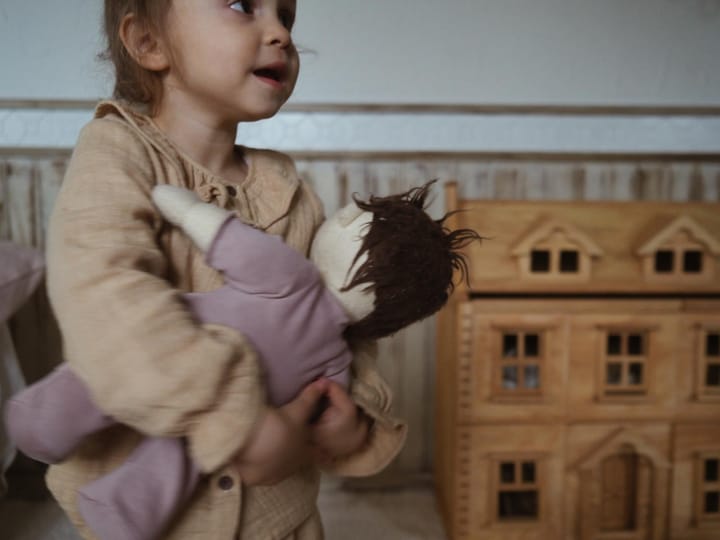
Comments ()